| Opening up more opportunities for Vietnamese businesses to participate in the global Halal market Untapped opportunities of the Halal market |
Halal market 5,000 billion USD per year - opportunity for business
At the “Workshop on Halal Market: Concept, Potential and Challenges” organized by the Ho Chi Minh City Food and Foodstuff Association (FFA) in coordination with relevant units on the afternoon of July 13, Ms. Ly Kim Chi - Vice President of the Ho Chi Minh City Business Association, President of FFA - said: Currently, the global Halal food market has great potential and is growing rapidly across continents from Asia, the Middle East - Africa to Europe and America.
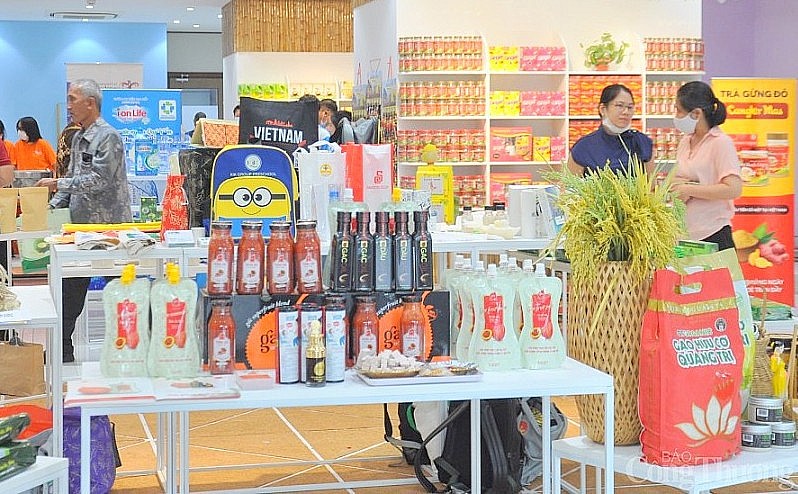 |
Halal Certification – The Golden Key for Vietnamese Products to Penetrate Muslim Markets |
The strong increase in demand for Halal products is not only due to the rapid growth of the Muslim population, but also reflects the trend that many non-Muslims in major economies such as China, Japan, the US, Europe, etc. increasingly prefer Halal products, because they meet high standards of food safety and environmental hygiene.
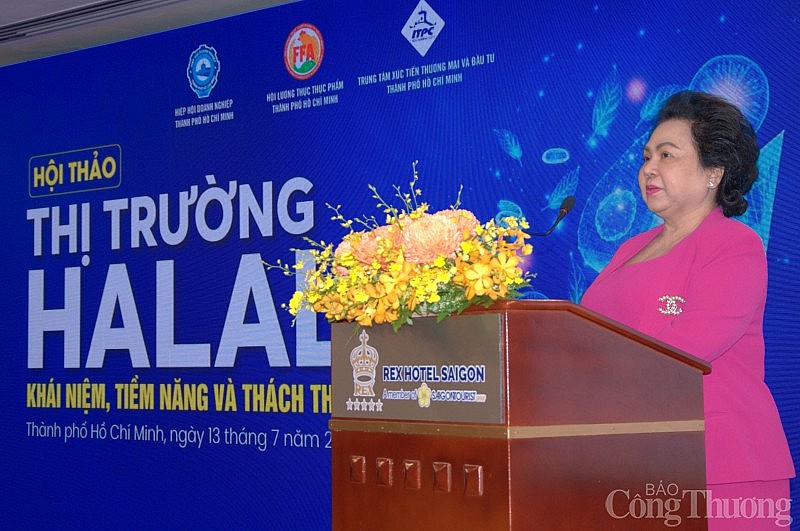 |
| Ms. Ly Kim Chi - Vice President - Ho Chi Minh City Business Association, President of Ho Chi Minh City Food and Foodstuff Association |
Meanwhile, Vietnam is one of the world's largest agricultural and aquatic product exporters with many typical products such as rice, rubber, tea, cashew, coffee, pepper, shrimp, fish, etc. and has important advantages. If well utilized and promoted, it will help Vietnam's exports firmly participate in the Halal product market.
In particular, the geographical location is close to large Halal markets when about 62% of the Muslim population is concentrated in Asia. Right in Southeast Asia, Indonesia or Malaysia... these populous Muslim countries will be one of the potential markets, not unfamiliar to Vietnamese businesses.
Trade cooperation with Malaysia in processing and exporting Halal food will help Vietnam not only exploit the Malaysian market but also expand exports to potential Middle Eastern countries as well as penetrate the global Halal market. It is estimated that the global Halal market will bring in trillions of USD each year as the demand for Halal products from Muslim countries increases.
However, in reality, Vietnamese food businesses can only meet a part of the demand of Muslim countries. Because to bring products to Muslim countries, businesses must have Halal certification for their products.
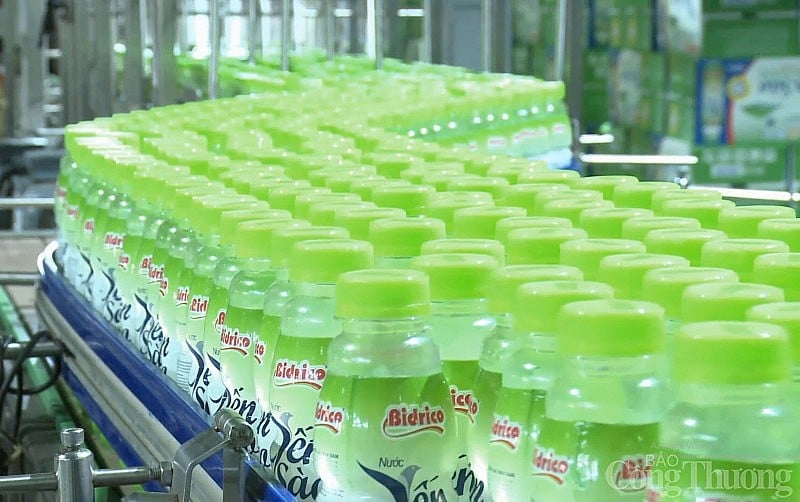 |
Tan Quang Minh Company's beverage products exported to the Muslim market |
However, Halal standards and regulations are becoming increasingly stringent, and Halal certification is not permanent and is not recognized equally in all countries and for all products. This causes many difficulties for businesses because they have to re-certify many times and must base on each export market to register for appropriate certification.
Vietnam is still in the early stages of developing the Halal industry into one of its main export sectors, so Vietnam needs to learn from the experiences of other countries, especially Malaysia, to create opportunities for businesses to expand exports.
How can Vietnamese businesses get Halal certification?
To help Vietnamese businesses better understand the Halal market, as well as its potential... at the workshop, Ms. Wong Chia Chiann - Consulate General of Malaysia and experts from the Muslim community shared regulations, standards, and methods for obtaining certification for Halal products. At the same time, they answered related questions that businesses were interested in.
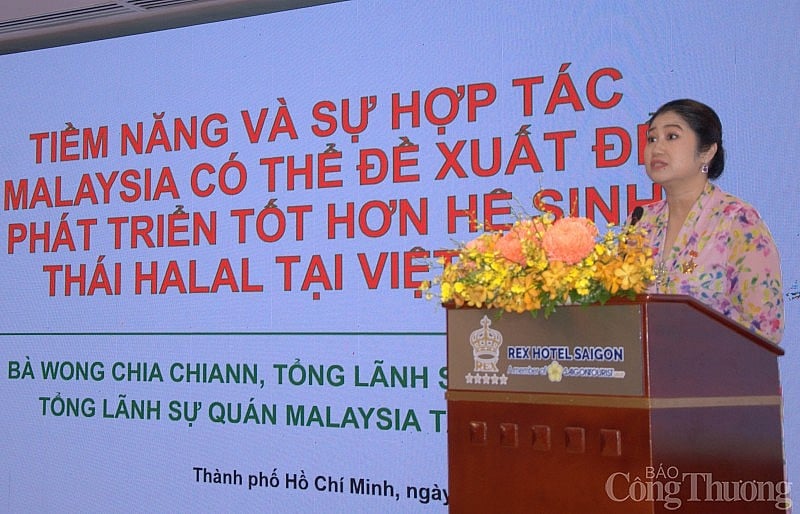 |
| Ms. Wong Chia Chiann - Consulate General of Malaysia in Ho Chi Minh City |
According to Ms. Wong Chia Chiann - Consulate General of Malaysia in Ho Chi Minh City, the Halal industry is one of the trends in the world market. It is a market worth 5 trillion USD.
Vietnam is one of the food producing countries and is geographically close to many countries with Muslim majority such as Malaysia, Indonesia in ASEAN. Halal and its potential have gained enough attraction in Vietnam, in general Vietnamese businesses have a common understanding of Halal.
However, the general understanding of Halal can vary. Some people say, “pork-free” when referring to Halal. Some say “Muslim-friendly” is Halal.
According to Ms Wong Chia Chiann, Halal food is not just “pork-free” or alcohol-free from Halal or the logo you always see written in Arabic – which means “allowed” and “lawful”.
So the question is, what is “permissible” and “lawful”? Halal requires that “the preparation of Halal food must comply with Islamic rules and the integrity, safety and hygiene of the product must be maintained throughout the supply chain.
This simply means that the food source, preparation, packaging must be Halal and in accordance with Shariah (Islamic rules). The meat or poultry source must also come from animals that are allowed for consumption (chicken, cattle, sheep) and must be slaughtered according to Islamic rules to make them Halal...
There needs to be standardization in hygiene and cleanliness. Meanwhile, carnivores, amphibians (like frogs), insects are not Halal. As for preparation, any contamination from prohibited elements or dirt also makes the food not Halal...
Thus, applying the above regulations, Ms. Wong Chia Chiann emphasized that Vietnamese enterprises wishing to be Halal certified must have sufficient information and knowledge about which products are permitted and which are not permitted under Islamic law. In addition, Halal and non-Halal products cannot be produced in the same production line...
Assessing the opportunities for businesses, the Malaysian Consulate General in Ho Chi Minh City said that there is a lot of potential for businesses because Vietnam is a reliable address in food production.
To promote the Halal industry in Vietnam, we can recommend that Vietnamese businesses bring Muslim personnel and experts into their organizations to develop Halal policies, internal Halal committees and monitor Halal processes, said Ms. Wong Chia Chiann.
For a long-term solution, Malaysia will propose to build up local personnel and experts in the Halal certification process, especially in the Muslim community. Malaysia is willing to share our experience in building a better Halal ecosystem in Vietnam…
Mr. Nguyen Tuan - Ho Chi Minh City Center for Trade and Investment Promotion: The global Halal food market for Muslims is huge, serving about 2 billion Muslims worldwide. The size of the global Halal economy is expected to increase to around US$10 trillion by 2027. The Halal product consumption market is widely distributed around the world, from Muslim to non-Muslim countries. However, the reality of our businesses importing and exporting food into the Halal market is just the beginning of exploration. Every year, our country has about 50 companies granted Halal certification with the main products being seafood, beverages, canned foods, confectionery, vegetarian food and pharmaceuticals. |
Source link






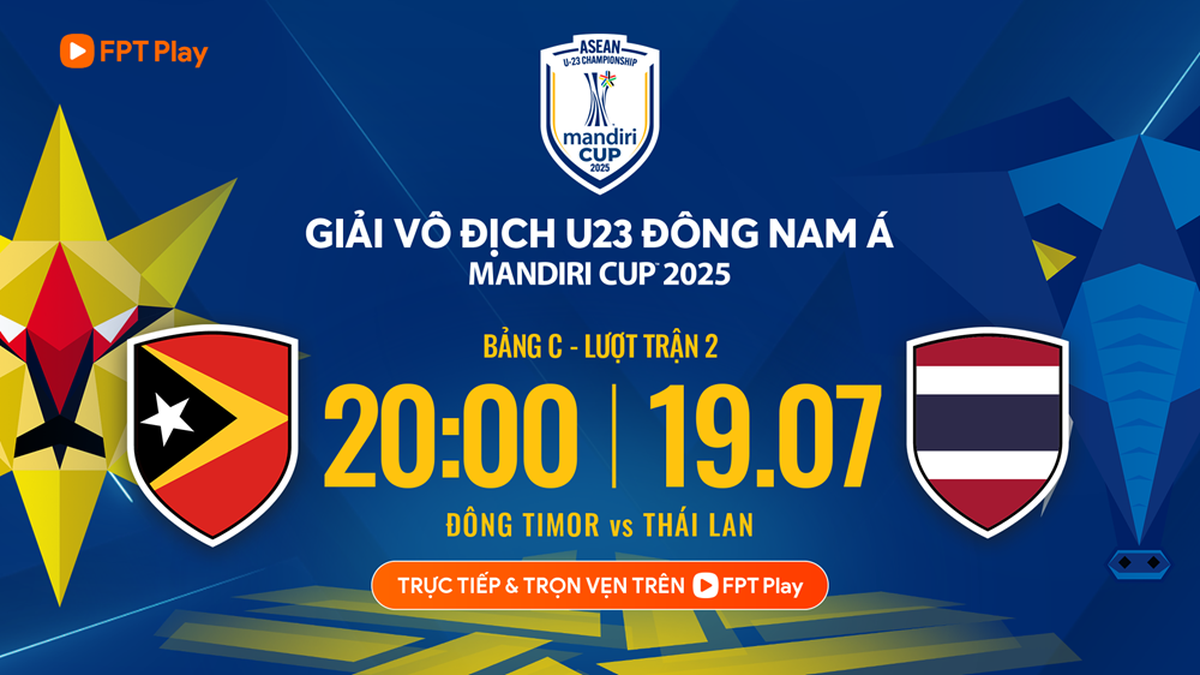
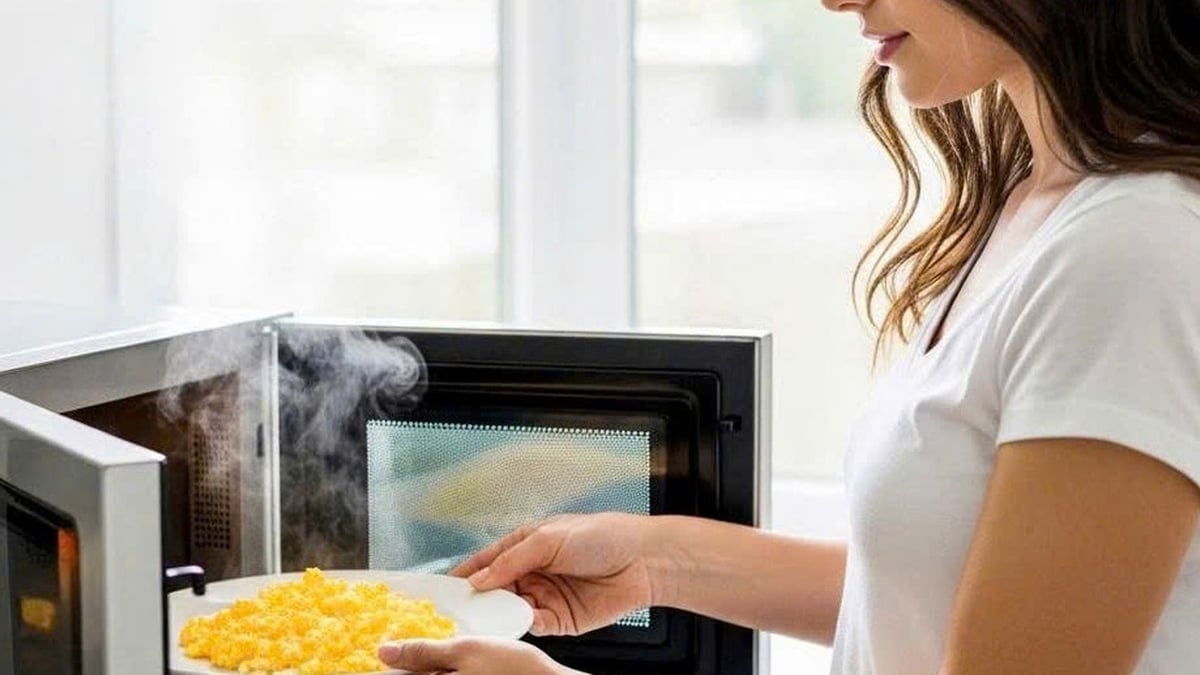
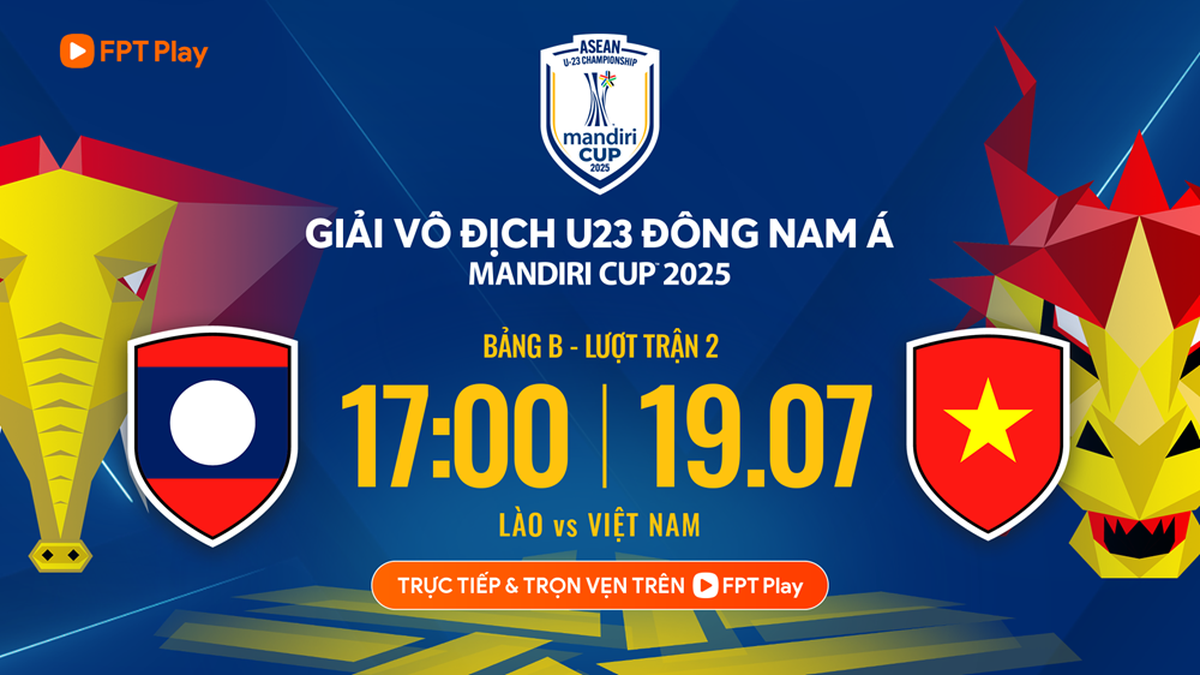
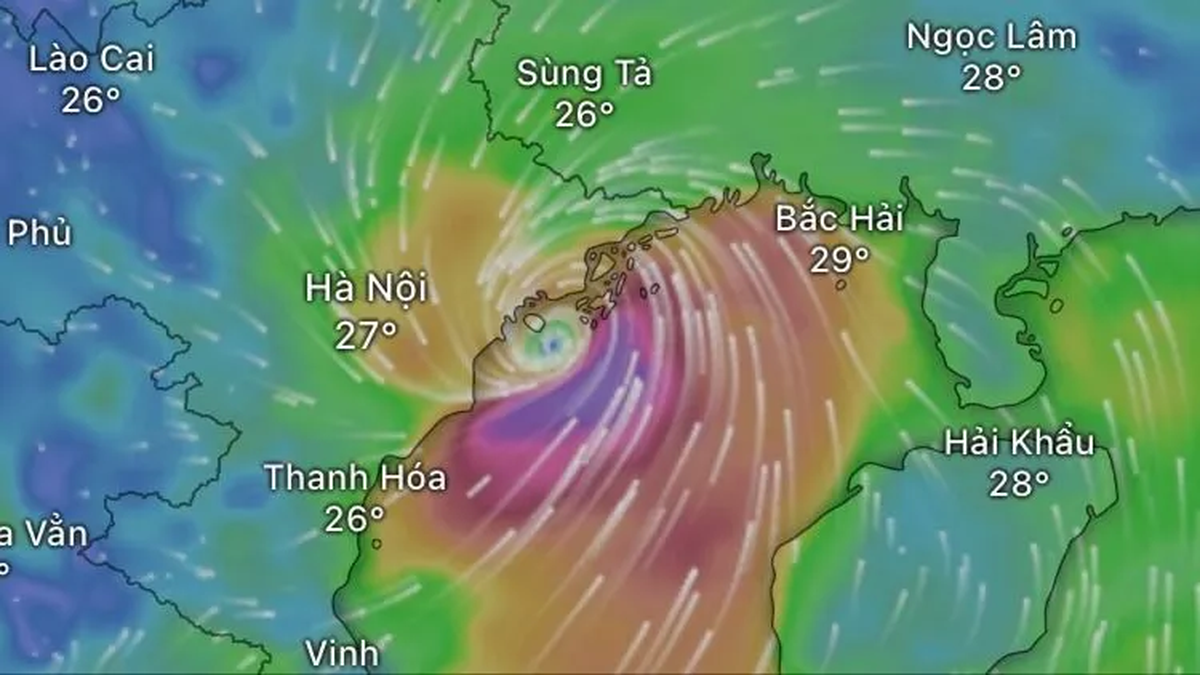


















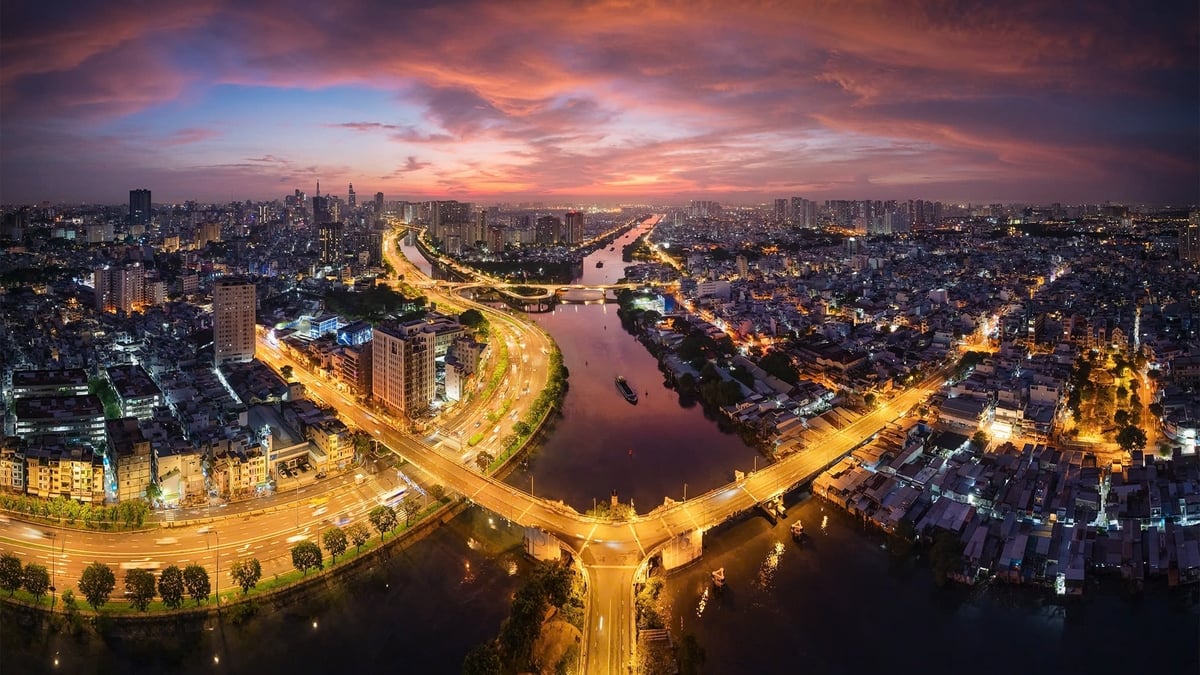









































































Comment (0)